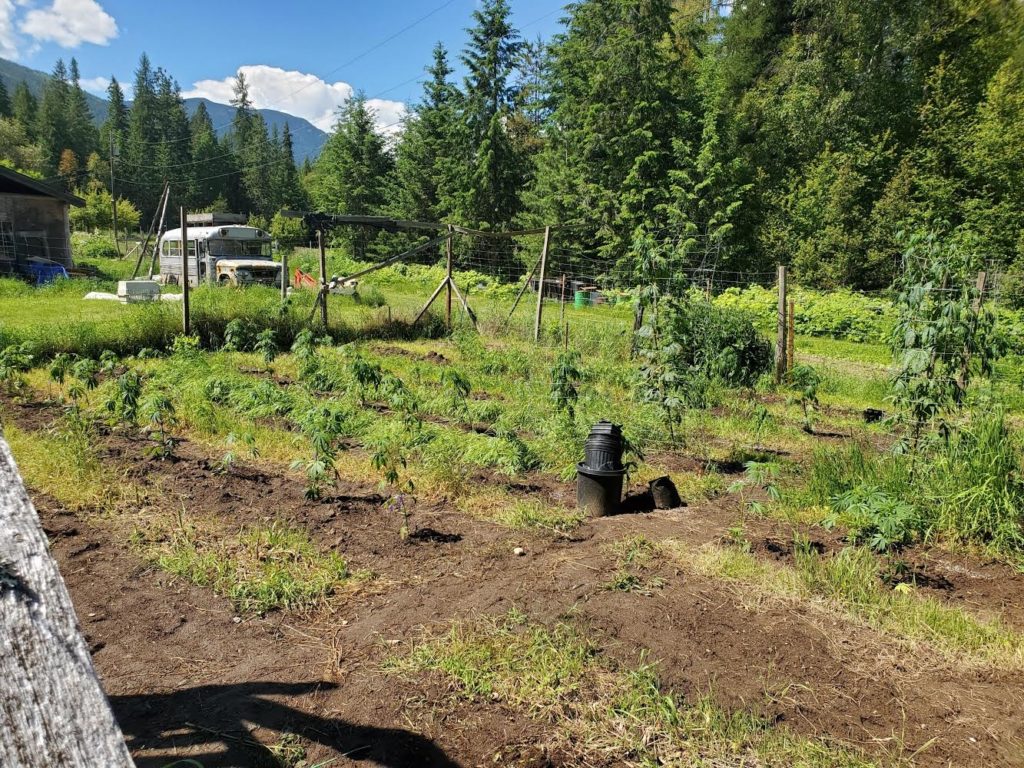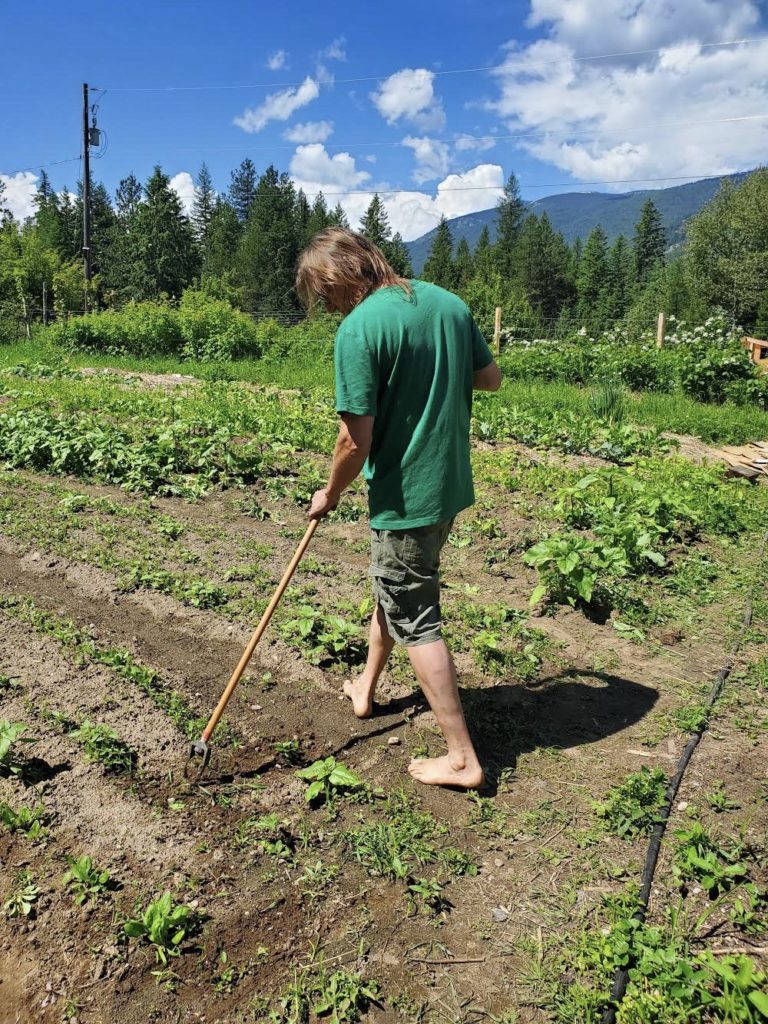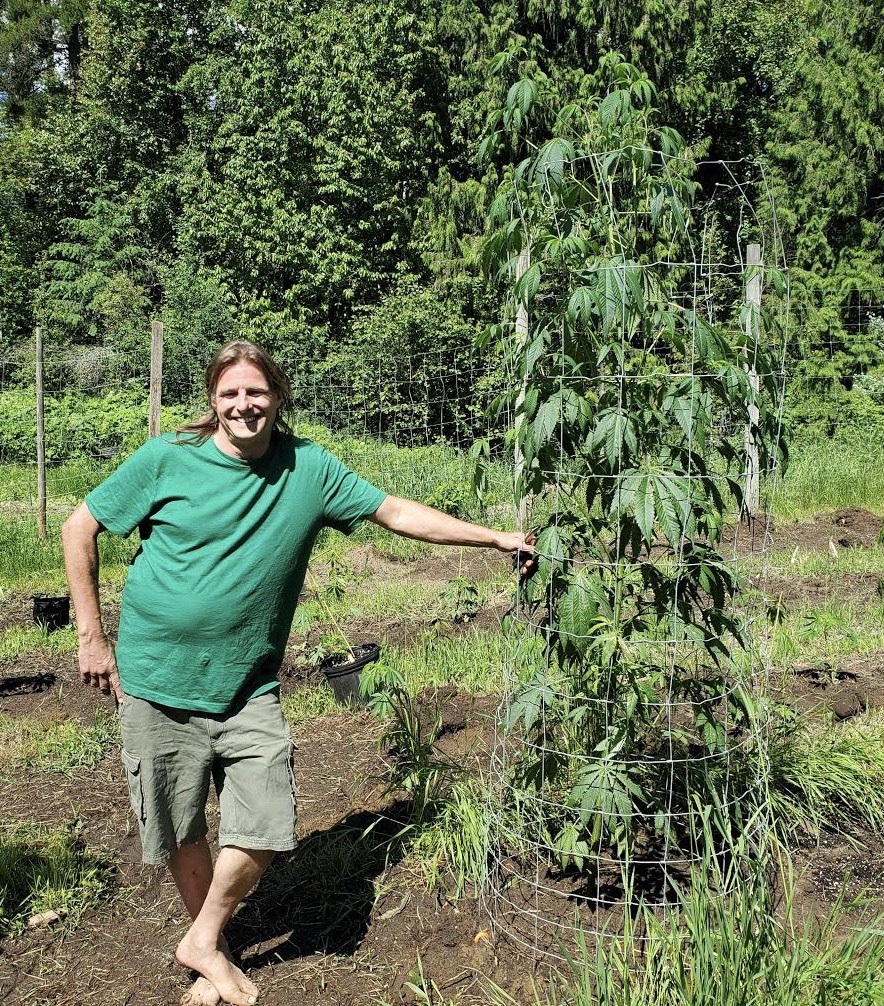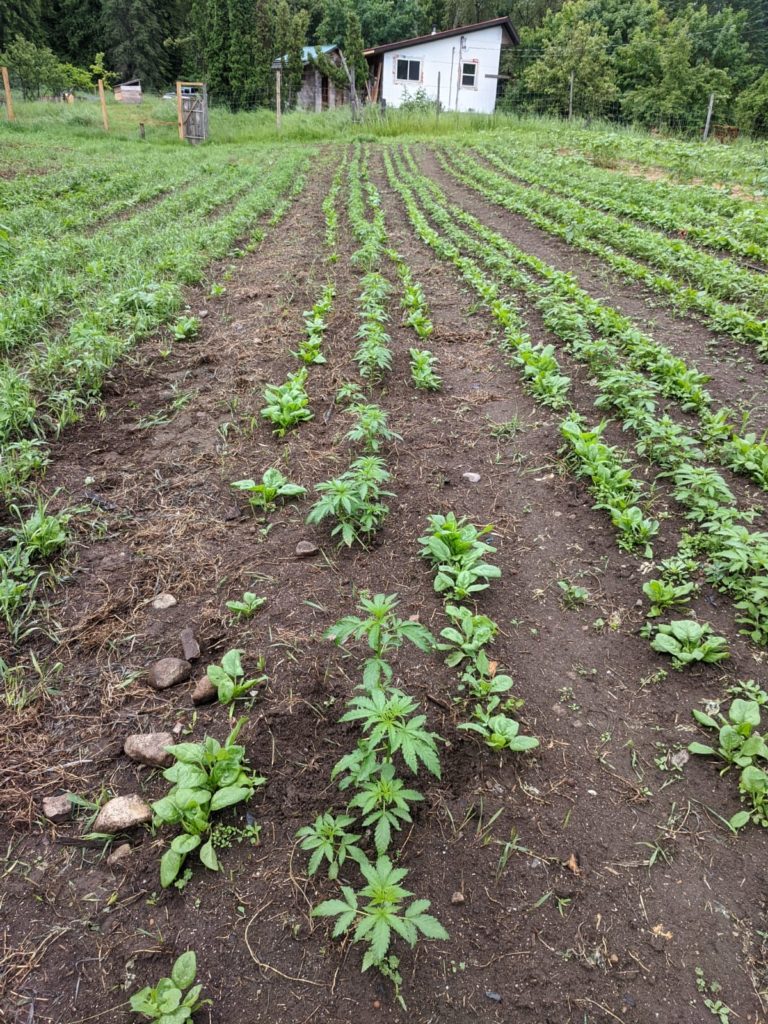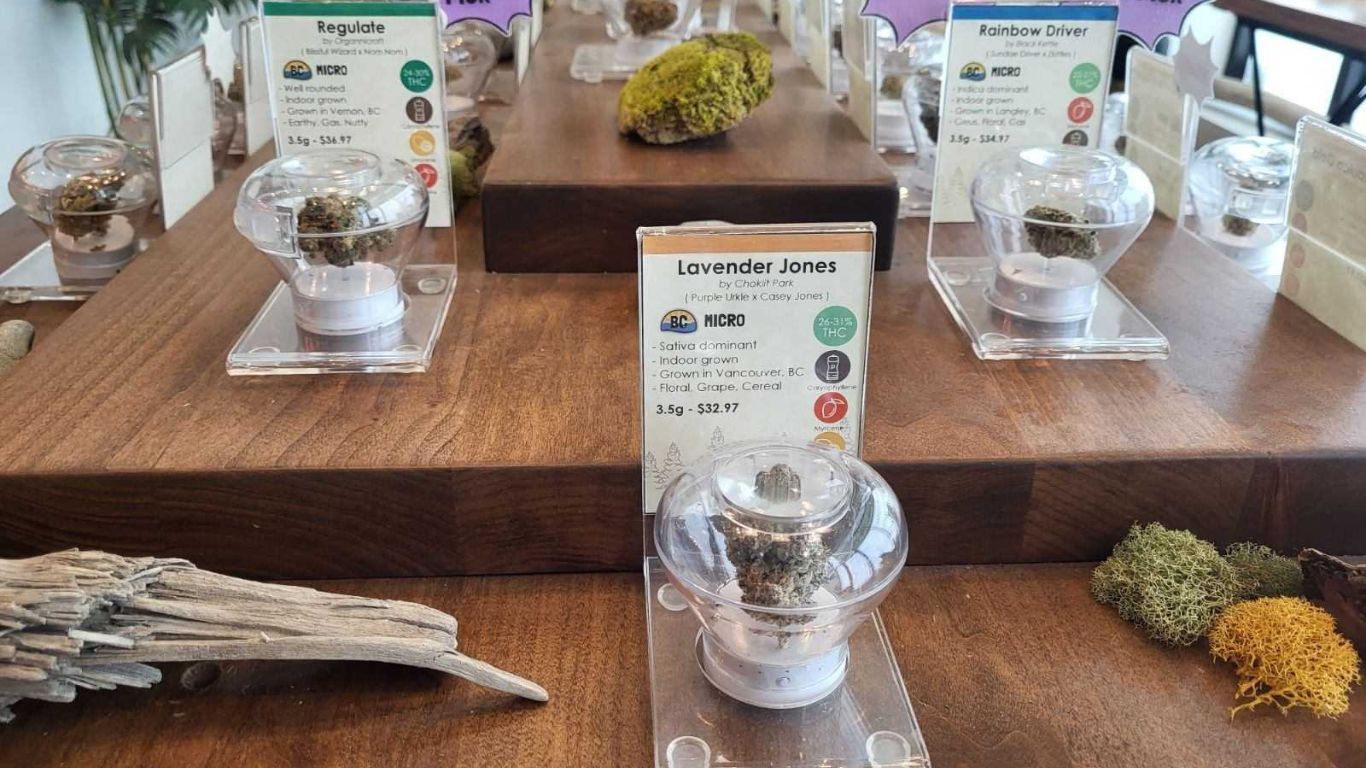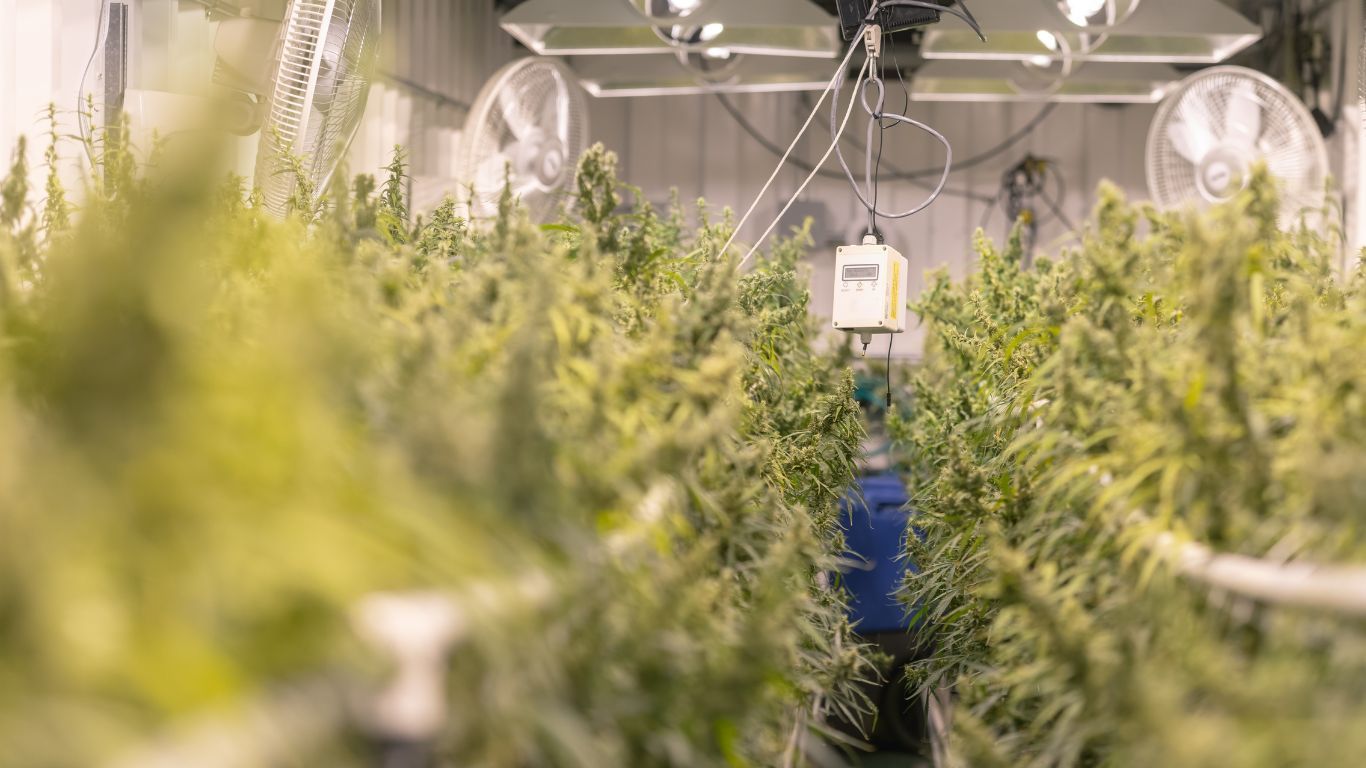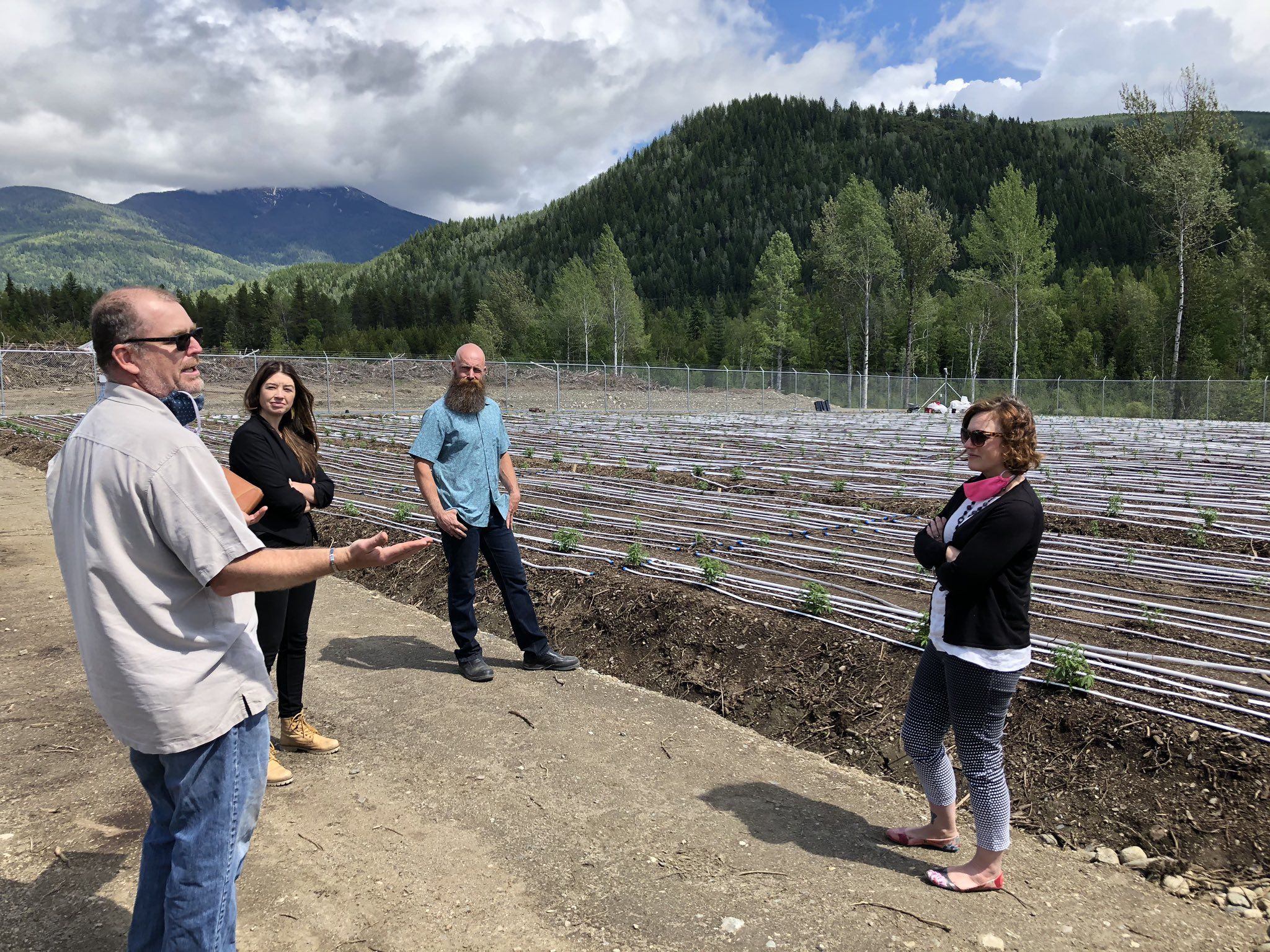
Some of the Kootenay’s first cannabis growers have begun making their way through a local program designed to help transition growers into the legal market.
The program, offered by Community Futures Central Kootenay (CFCK), a non-profit community economic development organization in southeastern British Columbia that helps people start their own business, was announced in 2019 when they began working with a handful of applicants who are just now beginning to progress through the federal licensing process.
Two newly licensed outdoor cultivators, Rosebud Cannabis Nursery in Salmo, and Lono’s Garden Paradise in Winlaw, were part of the community organization’s pilot project with five applicants they selected to develop templates for business plans and license applications through the Fall of 2019. Both come from a history of operating in the region’s storied legacy market.
Paul Kelly, Cannabis Business Transition Manager for CFCK, says working with these early clients has helped the organization develop templates to begin working with as many as four a month over the next two years.
The organization has been developing the program to help those in the region who wanted to find a way to transition to the legal market, but might have been unsure of how to proceed and unable to navigate the application process.
“Our main role is helping growers move, typically from an MMAR/ACMPR personal production licence, to recreational, commercial cultivation,” says Kelly. “That’s typically micro applicants, especially outdoor micros, because a lot of the legacy folks don’t have the access to capital they would need to do an indoor facility, so we’re seeing a lot of the people moving to the outdoor application.”
Lono’s Garden Paradise
Gary Krempl, the founder of Lono’s Garden Paradise, fits this description perfectly. Although he says he has many years experience with cannabis, growing indoors under a medical licence since 2008, the process of understanding and navigating the federal regulations was a real challenge. Community Futures helped him demystify the regulations and application process.
“A lot of the legacy folks don’t have the access to capital they would need to do an indoor facility, so we’re seeing a lot of the people moving to the outdoor application.”
Paul Kelly – Cannabis Business Transition Manager for Community Futures Central Kootenay
“I would definitely recommend it,” he says. “They were incredibly helpful. I had an idea of what I wanted to do, but I didn’t know how to get there. The paperwork was overwhelming, so they helped me with the application and licensing, walking me through everything.
“I’d go in once a week for like six months with Community Futures and we just brainstormed a lot and talked through the process and any problems, and developed it as we went.”
Another part of the program that helped him, he says, was a webinar the organization put together in 2019 on micro licensing, that included a presentation from Tamara Follett of SunLeaf Farmacy, an outdoor micro cannabis grower in New Brunswick.
“They were incredibly helpful. I had an idea of what I wanted to do, but I didn’t know how to get there. The paperwork was overwhelming, so they helped me with the application and licensing, walking me through everything.”
Gary Krempl – Lono’s Garden Paradise
Her presentation, he says, opened his eyes to what was possible under the given regulations. While many see large scale producers who have massive, multi-million dollar indoor facilities, Krempl says seeing Follett’s very modest outdoor farm made him see that it was possible for him, too. The presentation, plus the opportunity to adopt SOP’s that Follett offered, he says were a big benefit to demystifying the process.
“The amount of financing, security, and record keeping for indoor seemed a lot to me like jail, like I was building myself a prison,” says Krempl. “So it was a lightbulb moment when I first realized I wanted to do outdoor. Because I want to be a farmer out in my field leaning on my hoe. Not under security cameras and bright lights.”
“It was a lightbulb moment when I first realized I wanted to do outdoor. Because I want to be a farmer out in my field leaning on my hoe. Not under security cameras and bright lights.”
Gary Krempl – Lono’s garden paradise
“The other lightbulb moment,” he continues, “was seeing Tamara’s presentation, because I realized that I was over-thinking the whole thing, and she showed me it could be really simple. So it was a combination of realizing that I didn’t want to grow indoors and then watching her video, and I got inspired to see how simply I could do it. So every challenge, that was my mindset. How can I make this simple? How can I do this with what I already have?”
All in, Krempl says the process cost him about $15,000, largely because he already had his land and had fencing in place. Plus, he didn’t have to pay for any consulting because of the community futures program.
“There were consulting groups who came through town asking for anywhere from $20,000 to $120,000 to help us get a licence,” says Krempl. “They wined and dined us and tried to get us to sign on the dotted line. I wasn’t interested in that. Community Futures did all that for me, and I didn’t even have to pay a penny. They did everything in terms of compliance – we brainstormed solutions to everything that came up, and our application was approved in about five months. Health Canada told us they were very impressed with our application. What Paul and Community Futures set up, I would recommend to anyone in our area.”
Rosebud Cannabis Farms
Che’ Leblanc, the Founder and CEO of Rosebud Cannabis Farms in Salmo, BC, who was also just recently licensed and worked with the Community Futures cannabis program, also echoes the program’s value. Although they were already most of the way through the licensing process, he says he feels the organization helped to get it through the final licensing stages, in addition to providing a small loan for the farm.
“They gave us a more direct line to Health Canada, and we were able to bounce questions off them and get responses back more quickly. The fact that we were working with community futures added a little more momentum to our project, it definitely added some more eyes on us and began getting more attention from the community and the government.”
“A lot of the constituents that I’ve spoken to are people who are recognized as legacy cultivators, legacy producers, and they made a living in the black market. They’re not tied to organized crime, they’re good people, they didn’t have a lot of economic opportunities before legalization, and they wanted to continue producing the product that they have built a career on. They’re looking forward to transitioning to the legal market, but the hurdles that they’re experiencing can be as basic as filling out forms for three levels of government.”
MICHELLE MUNGALL – Minister of Jobs, Economic Development and Competitiveness and MLA for Nelson-Creston
One of those members of government who Rosebud got the attention of was the Minister of Jobs, Economic Development and Competitiveness and MLA for Nelson-Creston, Michelle Mungall. Community Future’s cannabis program is funded in part by the Ministry and Mungall has been a vocal supporter of the cannabis industry not only in the Kootenays’ but across BC.
The Minister visited Rosebud in mid June to see their operation as part of her role representing economic interests across the province. She says she sees potential in the market for businesses like Rosebud, and the need to help more growers transition into the legal market.
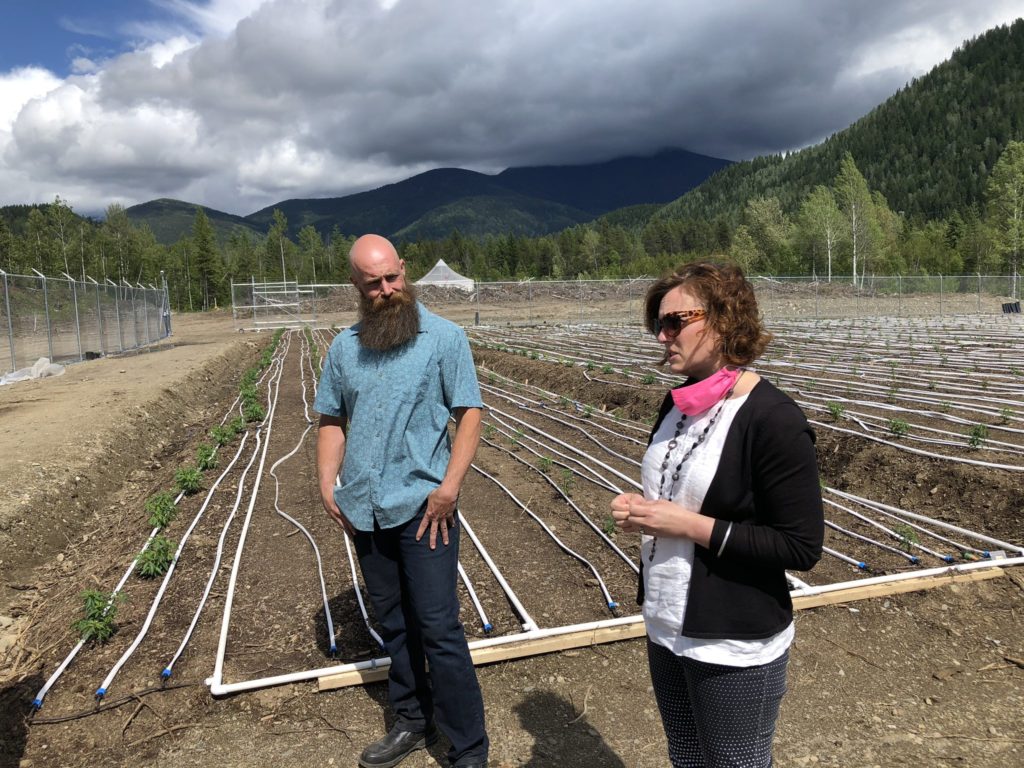
“I think what Rosebud is doing, there is definitely a market for that, especially around the conscientious consumer for environmental sustainability, they are ticking off all the boxes,” she says. “And we know there are markets for that because people are very conscious with what they are consuming, be it carrots or cannabis.”
“A lot of the constituents that I’ve spoken to are people who are recognized as legacy cultivators, legacy producers, and they made a living in the black market,” she continues. “They’re not tied to organized crime, they’re good people, they didn’t have a lot of economic opportunities before legalization, and they wanted to continue producing the product that they have built a career on. They’re looking forward to transitioning to the legal market, but the hurdles that they’re experiencing can be as basic as filling out forms for three levels of government.
“When you come from a black market environment for 20, 25 years, you’ve never filled out a form in your life in terms of your business, and now you have three levels of government regulation and all the forms that go with it. That’s just an example of one of the hurdles, you have to change the way you’ve been doing business all this time.”
“You can be the best grower in the world, but if you’re not good at writing SOPs, and an application, and dealing with the CRA, it’s very overwhelming. So this is where Community Futures can come in, they can provide that opportunity, which is a big part of all of this.”
Che’ Leblanc – Rosebud cannabis Farms
Leblanc is one of those individuals who was used to operating in the back market, describing himself as a second generation cannabis farmer with nearly thirty years experience.
“I know a lot of really good growers in this area,” he says, “and that’s exactly what they are, good growers. What they are not is regulatory experts, and that is fifty percent of this puzzle. You can be the best grower in the world, but if you’re not good at writing SOPs, and an application and dealing with the CRA, it’s very overwhelming. So this is where Community Futures can come in, they can provide that opportunity, which is a big part of all of this.”
He says he thinks there’s a need to better streamline the process in general, at all levels of government, but is grateful that programs like Community Futures are helping bridge the gap.
“Nobody wants to keep looking over their shoulders, wondering if today is the day they come and chop down my plants and arrest me. Nobody wants to do that. So if we can make this appealing and make this make sense, I think we will see an awful lot of transitions happen.”
Kelly shares a similar sentiment as LeBlanc and Minister Mungal, in saying that just convincing people to take part in a highly regulated environment can be a major challenge.
“To leave that system of known risk and known outcome is a big jump for people, into something they have no experience with, which is a heavily regulated environment,” he says. “So there’s a lifestyle change. Do they want to go through those steps, do that level of documentation, or do they want to keep looking over their shoulder?”
“It’s a bit of a change in culture to go from not writing anything down, to fully documenting everything that you’re doing and creating the kind of culture of compliance, tracking your document revisions, it’s definitely an adjustment.”
“It’s a milestone for the region,” adds Minister Mungall. “It’s a milestone for the industry. And it’s a milestone for the program that we’re funding through Community Futures Kootenay. That’s helping legacy growers and producers, or new growers and producers, get into the market, helping them navigate the regulations, filling out forms, all those basics to starting up a business.”

